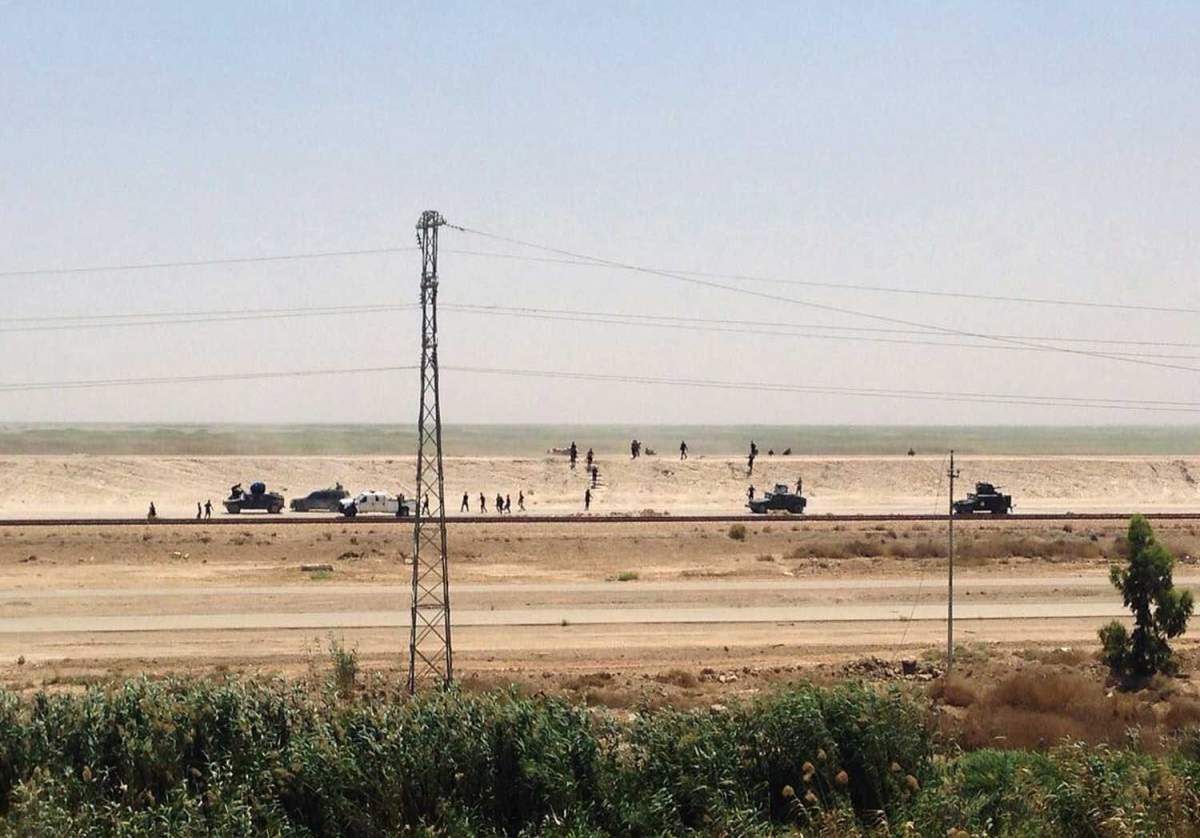Why was IS able to defeat the Iraqi army despite US help?
(Baonghean.vn) - US airstrikes cannot compensate for the divisions and distrust between the majority Shiite community and the minority Sunni community in Iraq.
| RELATED NEWS |
|---|
The US-led coalition pounded Islamic State (IS) forces over the weekend near the Iraqi city of Ramadi but that did not stop the group from capturing the city.
On Sunday (May 18), videos appeared to show Iraqi soldiers clinging to the sides of vehicles speeding out of Ramadi as IS advanced. The black IS flag now flies over the capital of Anbar, one of Iraq’s largest provinces.
Ramadi and Anbar province were battlegrounds from 2003 to 2006 when Sunnis including al-Qaeda in Iraq fought US-led coalition forces.
There are clear signs that Iraq’s national forces are not ready to fight IS despite US training and support, while Sunnis still have little faith in the Shiite-dominated government in Baghdad. The government has now called on Shiite militias to help retake Ramadi, a move that could further alienate the city’s Sunnis if the military forces harm the local population.
 |
| Iraqi security forces withdrew from Ramadi, the capital of Iraq's Anbar province, more than 110 km west of Baghdad on May 17. |
“The central government must explain and take responsibility for the capture of Ramadi by IS because they did not respond to our requests. They did not send reinforcements – nor ammunition or weapons,” said Suleiman al-Kubaisi, spokesman for the Anbar Provincial Council.
After Iraqi forces, backed by thousands of largely Iranian-backed Shiite militias, recaptured the city of Tikrit from IS in March, it appeared to be a turning point in the fight against IS.
“IS remains a powerful force,” said Kenneth M. Pollack, an expert on Middle East political-military issues and a former CIA analyst.
“Tikrit is not like Stalingrad,” Pollack stressed. “We all know this is not a war that can be won by air power alone.” He said the US needed to invest more in ground operations in Iraq.
The key to defeating IS is getting Iraq’s Sunnis to fight alongside the government, but Baghdad has yet to convince them that they have a vital role to play. “The government has to show the Sunnis that the future of Iraq – the thing they are fighting for – is something worth fighting for,” Pollack said.
Since Prime Minister Haidar al-Abadi took power from Nuri al-Maliki last year, he has promised reforms to the disaffected Sunni population, but little has changed. “We were waiting, and while we were waiting, Ramadi fell,” said Alaa Makki, a former Sunni member of the Iraqi parliament and a senior government adviser.
While millions of dollars have been poured into military operations against IS, virtually none has been invested in political change that would remove the Sunnis’ sense of second-class status and unite them against IS. “There should be real reconciliation among Iraqis… whatever forces or weapons we bring in will not mean anything if there is no political agreement. If they continue as they are now, there is a possibility that Baghdad will fall,” said former MP Makki.
Thu Giang
(According to TIME/AP)






